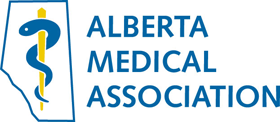When evaluating DMC, how do medical conditions and medications affect cognition?

 Contributed by:
Contributed by:
Lesley Charles, MBChB, CCFP(COE)
(Click for bio)
Case
Mrs. Williams is an 86-year-old woman admitted to hospital with a two-week history of dysuria, confusion, falls and functional decline. Her past medical history includes hypertension, diabetes, Alzheimer dementia and osteoporosis. Current medications include ramipril 5 mg daily, atorvastatin 40 mg daily, metformin 1,000 mg bid, calcium 500 mg daily and vitamin D 1,000 units IU.
Issue
The issue of decision-making capacity (DMC) is increasingly being recognized as a significant concern to society and the health care system.1,2 The degree of impairment regarding one’s DMC can vary as a result of developmental or disease processes, cognitive impairment or brain injury.3,4 As the life expectancy of Canadians and prevalence of cognitive impairment continues to rise, health care professionals (HCPs) will encounter more patients with questionable DMC and thus, assessment of DMC emerges as an important issue.1,2,5,6 Medical care and prescribing can impact decision-making capacity assessment (DMCA).
Background
In the province of Alberta, several legislative acts ensure the least restrictive and intrusive outcomes around DMC, including the Personal Directive Act7 and the Powers of Attorney Act,8 which allow adults to establish personal directives or enduring power of attorney and appoint agents who make decisions on their behalf. The Adult Guardianship and Trusteeship Act9 provides a range of options for decision-making in the absence of a personal directive (personal affairs) or enduring power of attorney (financial affairs). These acts define capacity as the ability of a person to understand the information that is relevant to making a personal decision in a specific domain and to appreciate the reasonable foreseeable consequences of the decision.7 A DMCA is an assessment of varying degrees of complexity conducted by HCPs to determine whether there is sufficient evidence to declare a person incapable of managing his or her affairs.7
Due to the invasive and lengthy nature of DMCAs, they should be conducted only for valid and specific reasons. Characteristics that make the reason for assessments valid should be based on whether the behaviors/decision-making puts the adult being assessed or others at risk; if the adult is known or suspected to have impaired decision-making; and if the adult has made choices that others believe are inconsistent with values previously held when they were apparently capable.10,11
Once a reason for assessment has been validated by the member(s) of the person’s attending team, several steps are undertaken. Relevant information is first collected related to the person’s DMC in an affected domain(s) (i.e., health care, accommodation, choice of associates, social activities, legal affairs, employment, education/vocational training and financial). Second, reversible medical conditions are addressed.10,11
Evidence
Mrs. Williams is admitted and diagnosed with a urinary tract infection. She is treated with cefixime. She is also found to have a left inferior pubic rami fracture and is started on morphine 5 mg q4h prn for pain. The team plans to add Fosamax to her calcium and vitamin D regimen.
The family informs the team on day two of the patient’s functional decline prior to admission and requests placement. They report the patient is not eating well and has left the stove on twice. They don’t report any further safety concerns. The patient herself wishes to go home. The team decides a DCMA is called for.
The trigger for the assessment appears valid as the patient is at risk from the stove being left on. However, there are outstanding medical issues that need to be addressed before reaching a conclusion.
The patient was admitted confused and an element of delirium was present on a background of Alzheimer dementia. Additionally, she was recently started on morphine which may have further impaired cognition.12,13
The patient should be stabilized on morphine or, optimally, weaned off. The DMCA assessment would be left until later in the admission when the patient can be assessed at her best. Ideally her delirium should be given time to clear though in some cases of prolonged delirium over months, a decision maker first needs to be identified and notified.
First, after reversible medical conditions are addressed, referral(s) to Social Worker, Occupational Therapist, Physiotherapist, and/or psychology for relevant social, cognitive and/or functional assessments may be made.10,11 Next, if the patient is deemed medically stable, the interdisciplinary team would then meet to explore options, problem solve and take appropriate action. Finally, if this problem solving fails, and assuming the Personal Directives and Adult Guardianship and Trusteeship acts7,9 are not too intrusive and/or restrictive, if the situation warrants a declaration of incapacity, a Capacity Assessment Interview would be conducted by the attending physician, and required forms, as per the acts, would be completed.
Recommendation
It was recommended that the patient’s stove be unplugged and she receive Meals on Wheels. The patient and her family were in agreement with this and no DMCA was conducted at this time. This article provides a practical approach to the importance of prescribing in DMCA.
Determination of capacity is a complex, interdisciplinary process that ideally involves a range of professionals who have medical, ethical, and legal knowledge.1 A multidisciplinary approach allows for variation in perspectives, facilitates the holistic identification of possible solutions, and ensures that safeguards are in place (e.g., no single person determines the capacity of any one patient).14 Furthermore, the involvement of specialist teams, particularly in complex cases, can additionally protect the autonomy of vulnerable adults.15 Potentially reversible causes of confusion, including medications or intercurrent illness, should be considered in capacity assessments.
References
- Moye J, Marson DC. Assessment of decision-making capacity in older adults: an emerging area of practice and research. J of Gerontology. 2007;62(1):3–11.
- Kim SYH, Karlawish JHT, Caine ED. Current state of research on decision-making competence of cognitively impaired elderly persons. Am J of Geriatr Psychiatry. 2002;10(2):151–65.
- Coverdale J, McCullough LB, Molinari V, Workman R. Ethically justified clinical strategies for promoting geriatric assent. Int J Geriatr Psychiatry 2006;21(2):151-7.
- Brindle N, Holmes J. Capacity and coercion: dilemmas in the discharge of older people with dementia from general hospital settings. Age Ageing 2005;34(1):16-20. Epub 2004 Oct 20.
- Statistics Canada [website]. Population by age and sex. Ottawa, ON: Statistics Canada; 2015. Available from: www.statcan.gc.ca/pub/91215-x/2012000/part-partie2-eng.htm.
- Canadian Institute for Health Information. Health care in Canada, 2011. A focus on seniors and aging. North York, ON: Canadian Institute for Health Information; 2011. Available from: https://secure.cihi.ca/free_products/ HCIC_2011_seniors_report_en.pdf.
- Province of Alberta. Personal Directive Act. Revised statutes of Alberta 2000. Edmonton, AB: Alberta Queen’s Printer; 2013. Available from: www.qp.alberta.ca/documents/Acts/p06.pdf.
- Province of Alberta. Powers of Attorney Act. Revised statutes of Alberta 2000. Edmonton, AB: Alberta Queen’s Printer; 2014. Available from: www.qp.alberta.ca/documents/Acts/p20.pdf.
- Province of Alberta. Adult Guardianship and Trusteeship Act. Statutes of Alberta, 2008. Edmonton, AB: Alberta Queen’s Printer; 2013. Available from: www.qp.alberta.ca/documents/Acts/A04P2.pdf
- Parmar J, Bremault-Phillips S, Charles L. "The Development and Implementation of a Decision-Making Capacity Assessment Model". Can Geriatr J 2015; 18(1):15-28.
- Charles L, Parmar J, Bremault-Phillips S, Dobbs B, Sacry L, Sluggett B. Physician education on decision-making capacity assessment: Current state and future directions. Can Fam Physician 2017; 63:e21-e30. http://www.cfp.ca/content/63/1/e21.abstract
- Pachet A, Newberry A, Erskine L. Assessing capacity in the complex patient: RCAT’s unique evaluation and consultation model. Can Psychol. 2007;48(3):174–86.
- Mahler J, Perry S. Assessing competency in the physically ill: guidelines for psychiatric consultants. Hospital Community Psychiatry. 1988;39(8):856–61.
- Campbell F, Wilson K. Considerations in the assessment of decision making. Alberta, Canada: Department of Psychology, Misericordia Hospital; 2005.
- Mujic F, Von Heising M, Stewart RJ, et al. Mental capacity assessments among general hospital inpatients referred to a specialist liaison psychiatry service for older people. Int Psychogeriatr. 2009;21(4):729–37.
